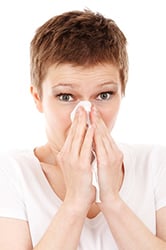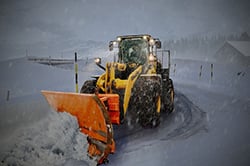 Workers’ Compensation Insurance is an important product for employees. There are six common myths that surround this insurance, though. Debunk the myths so you can understand and maximize your benefits.
Workers’ Compensation Insurance is an important product for employees. There are six common myths that surround this insurance, though. Debunk the myths so you can understand and maximize your benefits.
1. Small businesses don’t need to offer Workers’ Compensation Insurance.
You may work in a small business with only a few employees. Federal and state laws dictate that most businesses with one or more employees must carry Workers’ Compensation insurance. Be sure your employer carries this valuable insurance even if you are a solo employee.
2. I don’t need Worker’s Compensation insurance because my job is low-risk.
Some jobs, like construction, farming and commercial fishing, are dangerous. However, even low-risk jobs include injury and illness risks. You could develop carpal tunnel while typing or slip and fall in the break room during lunch. Your employer will pay lower Workers’ Compensation insurance premiums if you work in a low-risk job, and you absolutely must ensure you’re covered no matter what type of work you perform.
3. I’m careful and won’t get hurt.
While you might have an accident-free employment history, it only takes a second for an accident to happen. Plus, some workplace accidents or injuries occur because of someone else’s actions. Ensure you are covered by Workers’ Compensation regardless of your careful track record.
4. My boss is like family, and I could never sue.
It’s great that you have such a good relationship with your boss and feel like family. However, you are still employer-employee. By law, your employer must provide Workers’ Compensation for you. You also owe it to yourself and your dependents to have this valuable coverage in place in case you are injured or disabled and can’t work.
5. My boss will pay my work-related injury or illness expenses out-of-pocket.
Perhaps your boss has vowed to pay out-of-pocket for your medical, living and others expenses if you’re injured or become ill on the job. Unfortunately, your boss may decide not to pay, particularly when the Workers’ Compensation claims reach thousands of dollars or affect multiple employees. Always protect yourself with Workers’ Compensation insurance so that you can ensure your expenses are paid.
6. Any pain I feel at work is eligible for Workers’ Compensation.
While assembling furniture at work, you notice that your arm hurts. Instead of rushing to file a Workers’ Compensation claim, think about when and where the pain started. If it originated from an activity or injury that occurred outside of work, don’t file a Workers’ Compensation claim.
Workers’ Compensation insurance is important. Understand these six myths as you make sure you’re covered. For more details, contact your Human Resources manager or insurance agent.

 Numerous environmental conditions at your workplace can cause you to suffer an allergic reaction that ranges from mild to life-threatening. If you’re affected by an allergy, you may be eligible to file a Workers’ Compensation claim. Consider these tips as you reduce allergens at work and protect yourself.
Numerous environmental conditions at your workplace can cause you to suffer an allergic reaction that ranges from mild to life-threatening. If you’re affected by an allergy, you may be eligible to file a Workers’ Compensation claim. Consider these tips as you reduce allergens at work and protect yourself. Safety at work depends on all employees doing their part. Sometimes, though, co-workers decide to cut corners, get in a hurry, feel distracted, or otherwise neglect safety protocols. A 2010 study by the RAD group found that only 40 percent of employees intervened when they noticed
Safety at work depends on all employees doing their part. Sometimes, though, co-workers decide to cut corners, get in a hurry, feel distracted, or otherwise neglect safety protocols. A 2010 study by the RAD group found that only 40 percent of employees intervened when they noticed  Workers’ Compensation covers medical and other expenses if you suffer an injury or illness from work-related activities. You may wonder, though, if you can file a claim if you’re injured during your commute, especially if you carpool with co-workers or run errands for your boss on the way to work. Here are some guidelines to help you answer this question.
Workers’ Compensation covers medical and other expenses if you suffer an injury or illness from work-related activities. You may wonder, though, if you can file a claim if you’re injured during your commute, especially if you carpool with co-workers or run errands for your boss on the way to work. Here are some guidelines to help you answer this question. Whether you stand all day, operate heavy machinery or handle chemicals, you need to protect your feet as you work. Several foot safety tips reduce injuries and help you maintain a safe work environment.
Whether you stand all day, operate heavy machinery or handle chemicals, you need to protect your feet as you work. Several foot safety tips reduce injuries and help you maintain a safe work environment. Across the country, temperatures plummet during cold winter months. Many employees must work outdoors and face injury or even death because of the weather conditions. Protect your outdoor workers with several safety precautions.
Across the country, temperatures plummet during cold winter months. Many employees must work outdoors and face injury or even death because of the weather conditions. Protect your outdoor workers with several safety precautions. The majority of accidents in your workplace may stem from slips, trips and falls. In fact, slips, trips and falls cause one in four reported workplace injuries, 15 percent of workplace accidental deaths and 65 percent of lost work days.
The majority of accidents in your workplace may stem from slips, trips and falls. In fact, slips, trips and falls cause one in four reported workplace injuries, 15 percent of workplace accidental deaths and 65 percent of lost work days.







